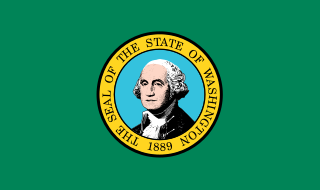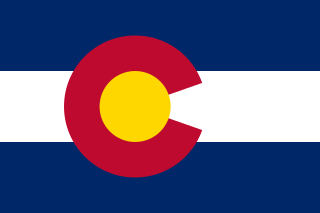
Proposition 215, or the Compassionate Use Act of 1996, is a California law allowing the use of medical cannabis despite marijuana's lack of the normal Food and Drug Administration testing for safety and efficacy. It was enacted, on November 5, 1996, by means of the initiative process, and passed with 5,382,915 (55.6%) votes in favor and 4,301,960 (44.4%) against.
The removal of cannabis from Schedule I of the Controlled Substances Act, the most tightly restricted category reserved for drugs that have "no currently accepted medical use," has been proposed repeatedly since 1972.

The Oregon Medical Marijuana Act, a law in the U.S. state of Oregon, was established by Oregon Ballot Measure 67 in 1998, passing with 54.6% support. It modified state law to allow the cultivation, possession, and use of marijuana by doctor recommendation for patients with certain medical conditions. The Act does not affect federal law, which still prohibits the cultivation and possession of marijuana.
California Senate Bill 420 was a bill introduced by John Vasconcellos of the California State Senate, and subsequently passed by the California State Legislature and signed by Governor Gray Davis in 2003 "pursuant to the powers reserved to the State of California and its people under the Tenth Amendment to the United States Constitution." It clarified the scope and application of California Proposition 215, also known as the Compassionate Use Act of 1996, and established the California medical marijuana program. The bill's title is notable because "420" is a common phrase used in cannabis culture.
Expanded access or compassionate use is the use of an unapproved drug or medical device under specials forms of investigational new drug applications (IND) or IDE application for devices, outside of a clinical trial, by people with serious or life-threatening conditions who do not meet the enrollment criteria for the clinical trial in progress.
Veterans for Medical Cannabis Access (VMCA), which was founded as Veterans for Medical Marijuana Access (VMMA) reflecting the pejorative word "marijuana", is an Elliston, Virginia-based non-profit service organization designed to assist American veterans who wish to be able to use marijuana for medical purposes with a doctor's recommendation. VMCA works towards the freedom for veterans to discuss the medical use of marijuana with their doctors without the risk of reprisal.

Cannabis in Oregon relates to a number of legislative, legal, and cultural events surrounding use of cannabis. Oregon was the first U.S. state to decriminalize the possession of small amounts of cannabis, and among the first to authorize its use for medical purposes. An attempt to recriminalize possession of small amounts of cannabis was turned down by Oregon voters in 1997.

In the United States, the use of cannabis for medical purposes is legal in 33 states, four permanently inhabited U.S. territories, and the District of Columbia, as of January 2019. Fourteen other states have more restrictive laws limiting THC content, for the purpose of allowing access to products that are rich in cannabidiol (CBD), a non-psychoactive component of cannabis. There is considerable variation in medical cannabis laws from state to state, including how it is produced and distributed, how it can be consumed, and what medical conditions it can be used for.

Cannabis in California is legal for both medical and recreational use. In recent decades, the state has been at the forefront of efforts to reform cannabis laws, beginning in 1972 with the nation's first ballot initiative attempting to legalize cannabis. Although Proposition 19 was unsuccessful, California would later become the first state to legalize medical cannabis with the passage of the Compassionate Use Act of 1996. In November 2016, California voters approved the Adult Use of Marijuana Act to legalize the recreational use of cannabis.
The World Famous Cannabis Cafe opened in Portland, Oregon, as the first cafe in the United States for state-authorized medical marijuana cardholders. Established in 2009 by Madeline Martinez, then the Executive Director of Oregon NORML, the Cannabis Cafe was established as a place for Oregon Medical Marijuana Program (OMMP) cardholders to socialize and safely medicate out of public view as required by state law. Members of the club had to be a current OMMP cardholder and pay an entry fee.

In the United States, the use and possession of cannabis is illegal under federal law for any purpose, by way of the Controlled Substances Act of 1970. Under the CSA, cannabis is classified as a Schedule I substance, determined to have a high potential for abuse and no accepted medical use – thereby prohibiting even medical use of the drug. At the state level, however, policies regarding the medical and recreational use of cannabis vary greatly, and in many states conflict significantly with federal law.

The legal history of cannabis in the United States began with state-level prohibition in the early 20th century, with the first major federal limitations occurring in 1937. Starting with Oregon in 1973, individual states began to liberalize cannabis laws through decriminalization. In 1996, California became the first state to legalize medical cannabis, sparking a trend that spread to a majority of states by 2016. In 2012, Colorado and Washington became the first states to legalize cannabis for recreational use.
Medicinal marijuana in Nevada refers to a government-sanctioned program in Nevada allowing individuals suffering from chronic conditions to legally consume cultivated marijuana or products containing marijuana chemical derivatives like THC and CBD. By early 2016, there were about "11,000 medical-card holders" living in southern Nevada. Nevada is a state which recognizes reciprocity for out-of-state marijuana card holders, with some dispensaries estimating that around half of their business comes from out-of-state cardholders.

Amendment 20 was an amendment to state statutes, submitted for referendum in the 2000 general elections in the U.S. state of Colorado. The amendment was adopted by 54% of participating voters. Under the law, patients may possess up to 2 ounces of medicinal marijuana and may cultivate no more than six marijuana plants at a time. Patients who are caught with more than this in their possession may argue "affirmative defense of medical necessity" but are not protected under state law with the rights of those who stay within the guidelines set forth by the state.[4]

Cannabis in Minnesota is illegal for recreational use, but permitted for medical use. Possession of personal amounts was decriminalized in 1976.
Cannabis in Illinois is decriminalized and legal for medical use. As of April 2019, over 62,000 qualifying patients participate in the state's medical cannabis and opioid alternative programs. Since legalization in November 2015, retail sales in Illinois have reached nearly $305 million at 55 dispensaries across the state.
Cannabis in Hawaii is illegal for recreational use. Possession is permitted only for medical use and otherwise remains a criminal infraction.
In the U.S. state of Delaware, marijuana (cannabis) is illegal for recreational use, though decriminalized for possession of small amounts. The use of marijuana for medical purposes is permitted for adult patients with certain serious illnesses.
In the U.S. state of Maryland, the recreational use of marijuana (cannabis) is illegal. However, since 2014, the possession of 10 grams or less of marijuana has been decriminalized. In 2012, a state law was enacted to establish a state-regulated medical marijuana program. The program became operational on December 1, 2017.
Cannabis in Florida is legal for medical use per Florida Amendment 2 (2016), but illegal for recreational use.











